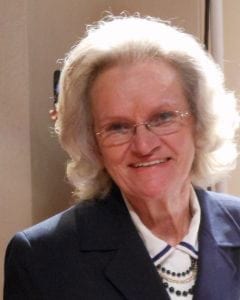We all run into problems in our everyday lives that cause frustrations and test our patience. If we’re feeling well, we react to those issues at the moment and then move on. However, those with rare diseases who are often very tired and stressed too frequently run into multiple frustrations due to the fact that so few understand what their lives are really like.
So, just as volcanoes erupt because of extreme pressure, it’s not hard for people in the rare disease community to understand why a rare disease patient or parent cries out, “I need to vent!”
That need to vent might be caused by an encounter with a healthcare worker, a teacher, an insurance company, a medical supply company, a bureaucracy, a family member, or a friend. Or it might be because they have had enough of seeing the effect of the rare disease on their loved ones.
No one wants to be seen as a complainer, yet it is not healthy to suppress painful feelings. We all need a safety valve.
Before social media was available, some of us had trusted friends or family members we could call and ask if we could please blow off a little steam, so we could move forward toward dealing with the problem. I recall wanting to yell at a school guidance counselor on my daughter’s behalf, but instead, I argued with him in my head all the way home. Then I called a trusted friend and asked her to let me sound off. Friends like that are extremely valuable.
Once I had that out of my system, I prayed for guidance, as I often did. Then I realized a new way to attack the situation. I’m not sure I would have been able to figure out how to handle the situation as quickly if I had not been able to verbalize my feelings first.
That was only one example of the many negative encounters we needed to work through during my daughter’s life of dealing with complications brought on by a relentless rare disease.
Today, many often choose private settings on social media because they are afraid that someone they know might feel offended if they need to discuss the feelings that are brought about when those with everyday problems complain about normal everyday frustrations. Most feel that they would be thankful if that was all they had to think about.
Or, maybe they think that one of the health care workers they are dealing with might misunderstand and then treat them differently in the future. Or, it might be someone in the school system who could end up acting differently with their child.
Recently, I read a comment by a mother who heard another mother complaining about her children who were simply behaving like children because they are still children. Those children will grow up. Her child won’t. She wanted to say something but thought it would be better to share her feelings with others in a group closed to rare disease families, knowing there would be understanding there.
Sometimes a rant by one parent reminds others of, “the time that…”
We have all had numerous times like that. I found that the most difficult ones to deal with are the fights with bureaucracies. The stories I have heard from others are too numerous to count.
However, I have never known anyone dealing with rare disease frustrations to give up the fight. We might cry, complain, yell, and stamp our feet. We rant. And then we carry on to continue the fight for those we love.







